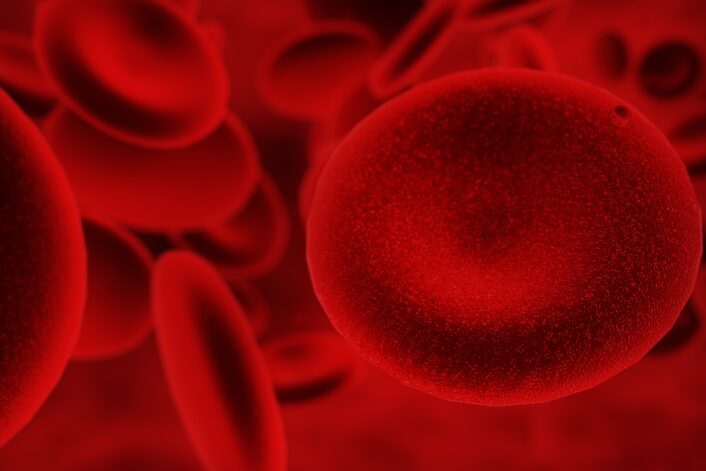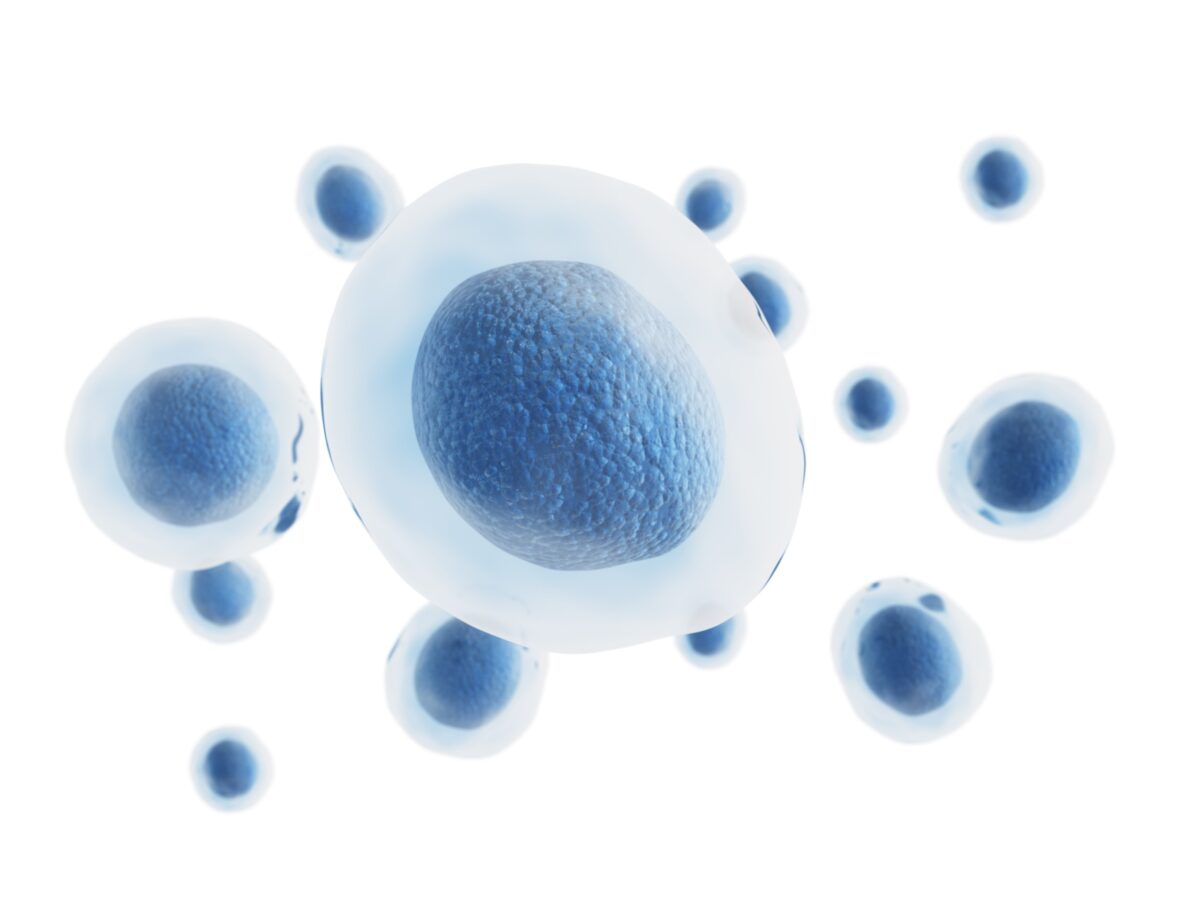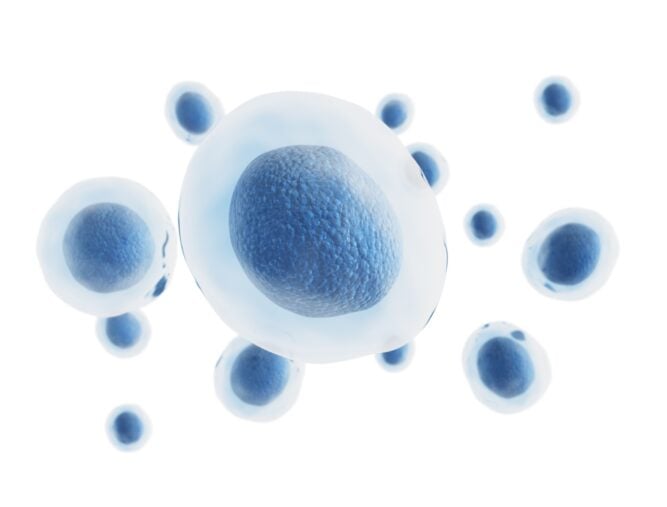Disclaimer: This article is for informational purposes only and is not intended to diagnose any conditions. LifeDNA does not provide diagnostic services for any conditions mentioned in this or any other article.
Aggression is a complex behavior that can range from mild, everyday frustration to intense anger and even physical confrontations. While it’s easy to think of it as just a response to stress or a bad mood, there’s more to the story.
Scientists have been exploring whether certain people are more prone to aggressive behavior due to their genetic variation. Could the tendency to lash out in anger or struggle with self-control actually be influenced by inherited traits?
What is Aggression?
Aggression is a behavior characterized by actions or intentions aimed at causing harm or asserting dominance over another individual. It can manifest in various forms, such as physical violence, verbal threats, or even non-verbal displays like glaring.
From a scientific perspective, aggression is considered a natural response that evolved as a survival mechanism, helping individuals defend themselves, secure resources, or establish social hierarchy.
However, the underlying causes of aggression are complex, involving a combination of genetic, environmental, and neurological factors. Research indicates that certain genes may influence aggressive tendencies by affecting neurotransmitter systems in the brain, particularly those involving serotonin and dopamine, which play key roles in regulating mood and behavior. Variations in these genes can potentially predispose individuals to higher levels of impulsivity or irritability, increasing the likelihood of aggressive responses.
Environmental influences, such as early-life experiences, social dynamics, and even exposure to stressful situations, can also shape how genetic predispositions are expressed. Therefore, while aggression has a biological component, it is not solely determined by one’s genetic makeup. Instead, it reflects an interplay between inherited traits and life experiences, highlighting the complexity of how genetics can influence behavior and daily life.
The Psychology Behind Aggression
The psychology behind aggression involves understanding the mental and emotional processes that drive aggressive behavior. It is influenced by a combination of biological, cognitive, and social factors. Biologically, the brain’s limbic system, particularly the amygdala, plays a key role in processing emotions like fear and anger.
When the amygdala is highly active, it can trigger aggressive responses, especially in situations perceived as threatening. Neurotransmitters, such as serotonin and dopamine, also contribute to regulating mood and behavior; imbalances in these chemicals can make individuals more prone to aggression.
Cognitively, how a person interprets their environment and experiences can affect their likelihood of exhibiting aggression. Those who perceive hostility or unfairness, even when it’s not present, may be more inclined to react aggressively. This cognitive bias can be shaped by past experiences or learned behaviors, making it a significant factor in understanding aggression.
Socially, aggression can be influenced by cultural norms, exposure to violent behaviors, and stressors like social rejection or economic hardship. These factors can interact with genetic predispositions, amplifying or mitigating the expression of aggression. The psychology of aggression, therefore, is not just a result of innate tendencies but a dynamic interplay of the mind, environment, and inherited traits.
Is Aggression a Personality Trait?
Aggression itself is not considered a personality trait, but rather a behavior that can be influenced by certain personality traits. In psychology, personality traits are enduring patterns of thoughts, feelings, and behaviors that shape how an individual interacts with the world.
Traits like impulsivity, irritability, and hostility can contribute to a higher likelihood of aggressive behavior. For example, individuals with high levels of impulsivity may struggle to control their anger, leading to more frequent displays of aggression.
Research in personality psychology suggests that traits associated with aggression often overlap with the Big Five personality dimensions, particularly low agreeableness, and high neuroticism.
Low agreeableness is characterized by a lack of empathy or a tendency toward antagonistic behaviors, while high neuroticism involves a greater sensitivity to stress and negative emotions, which can trigger aggression.
Environmental factors, such as upbringing, life experiences, and social influences, also play significant roles in determining whether someone exhibits aggressive behaviors in different situations.
Genetics of Aggression
The OXTR Gene
One study looked at how genes and life stress interact to affect aggression in teenagers. Researchers focused on a specific gene (OXTR) that is linked to oxytocin, a hormone involved in social behaviors. They studied a group of 197 Chinese Han adolescents aged 14-17 to see if a certain variation (SNP rs53576) in the OXTR gene influenced aggression, especially under stressful conditions.
To measure aggression, they used a 12-question survey. Stressful events from the past year were also recorded. DNA samples were taken to identify which version of the OXTR SNP each participant had.
The results showed that teens with the AA genotype of the OXTR SNP who experienced high levels of stress were more likely to show physical aggression and hostility compared to those with the GG genotype. This effect was stronger in boys, where AA-genotype boys under high stress had higher aggression levels than the other groups. However, this pattern wasn’t seen in girls.
Overall, the study suggests that the AA-genotype of the OXTR gene SNP rs53576 may be linked to higher aggression when teens face significant life stress. These findings help explain how genetics and stressful experiences together can influence aggressive behavior in adolescents.
Other Factors that Can Affect Aggression
Aggression is influenced by a range of factors that extend beyond genetic predispositions and personality traits. Here are some key factors that can affect aggression:
Biological Factors
Hormonal levels, particularly testosterone, have been linked to aggression. Higher testosterone levels are associated with increased aggression, though the relationship is complex and influenced by other variables, such as social context.
Additionally, neurotransmitters like serotonin and dopamine play crucial roles in regulating mood and impulsivity. Low serotonin levels, in particular, have been connected to a higher risk of aggressive behavior due to impaired impulse control.
Neurological Factors
The brain’s structure and functioning can significantly impact aggression. The amygdala can become overactive in response to perceived threats, potentially leading to aggressive reactions.
The prefrontal cortex, which is involved in decision-making and impulse control, helps regulate aggressive impulses. Damage or dysfunction in this area can make it more difficult for individuals to manage aggression.
Environmental Factors
Experiences in childhood, such as exposure to violence or abuse, can increase the likelihood of aggression later in life. Stressful life events, social rejection, or living in a hostile environment can also trigger aggressive responses. These factors may interact with genetic predispositions, amplifying aggressive tendencies in some individuals.
Substance Use
Alcohol and certain drugs can lower inhibitions and impair judgment, making aggressive behavior more likely. Substance use can disrupt the balance of neurotransmitters in the brain, affecting mood and impulse control.
Social and Cultural Influences
Cultural norms and social learning can shape how aggression is expressed. For instance, societies that view aggression as an acceptable response to conflict may see higher rates of aggressive behavior. Peer influence, media exposure to violence, and social status can also contribute to aggression.
Situational Factors
Immediate circumstances, such as heat, crowding, or frustration, can increase aggression. These stressors can heighten arousal levels, making individuals more prone to react aggressively.
Understanding these factors helps illustrate that aggression is a multifaceted behavior, shaped by a dynamic mix of biology, environment, and situational influences.
What are the Common Triggers of Aggression?
Common triggers of aggression often arise from situations or conditions that provoke stress, frustration, or perceived threats. Here are some key triggers supported by scientific data:
Frustration
When individuals are unable to achieve a goal or are blocked from reaching a desired outcome, frustration can build up. The frustration-aggression hypothesis suggests that this can lead to aggressive behavior, especially when there is no apparent way to alleviate the frustration.
Perceived Threats or Provocation
Feeling threatened or provoked can trigger aggression as a defensive response. This can include direct threats to one’s safety, personal insults, or even non-verbal cues perceived as hostile, such as aggressive body language. The amygdala can become more active in these situations, potentially leading to aggression.
Pain or Discomfort
Physical discomfort, such as pain, heat, or excessive noise, can increase irritability and make aggression more likely. Studies show that higher temperatures and discomfort are linked to higher rates of aggressive incidents, suggesting that environmental stressors can influence aggression levels.
Social Rejection or Isolation
Experiences of social rejection or exclusion can trigger aggression. Being isolated or rejected can cause psychological pain, which may provoke aggressive behavior as a coping mechanism.
Stress and Overstimulation
High levels of stress or being overwhelmed can impair one’s ability to manage emotions effectively. Chronic stress increases cortisol levels, which can disrupt the balance of neurotransmitters associated with mood and aggression.
Recognizing these triggers helps in understanding aggression’s roots and can inform strategies for managing it effectively.
Can PTSD Trigger Aggression?
Post-Traumatic Stress Disorder (PTSD) can trigger aggression. PTSD is a mental health condition that occurs after experiencing or witnessing a traumatic event, such as violence, combat, or severe accidents. Individuals with PTSD may exhibit heightened aggression due to several interconnected factors:
- Hyperarousal: People with PTSD often experience hyperarousal, where the body is in a constant state of heightened alertness. This can make individuals easily startled or feel constantly on edge. The brain’s fight-or-flight response may be overactive, leading to aggressive reactions as a form of self-defense, even in non-threatening situations.
- Emotional Dysregulation: PTSD is associated with difficulties in regulating emotions, leading to intense mood swings and irritability. This emotional instability can increase the likelihood of aggressive outbursts when individuals struggle to manage feelings of anger, frustration, or fear.
- Re-experiencing Trauma: Flashbacks and intrusive memories are common symptoms of PTSD, causing individuals to relive traumatic experiences. During these episodes, the brain may perceive a threat, even if none is present, potentially triggering aggression as a response to perceived danger.
- Alterations in Brain Functioning: PTSD can affect the structure and functioning of the brain, particularly the amygdala and prefrontal cortex. The amygdala may become overactive, while the prefrontal cortex may be underactive. This imbalance can increase impulsivity and aggressive behavior.
- Co-occurring Conditions: PTSD often occurs alongside other conditions, such as substance use disorders or depression, which can further contribute to aggression. Substance use, in particular, can lower inhibitions and exacerbate aggressive tendencies.
In individuals with PTSD, aggressive behavior is not simply a personality trait but a complex response to trauma and its effects on the brain. Understanding these mechanisms can help inform effective treatments for managing aggression, such as trauma-focused therapy, cognitive-behavioral therapy (CBT), and medication.
What are the Traits of an Aggressive Person?
Traits associated with an aggressive person often involve patterns of behavior, emotions, and thought processes that increase the likelihood of reacting aggressively. These traits are shaped by a combination of genetic predispositions, personality, and environmental influences. Here are some common traits observed in aggressive individuals:
High Impulsivity
Aggressive individuals often display impulsive behavior, acting without considering the consequences. Impulsivity can make it difficult to regulate emotional responses, leading to sudden aggressive outbursts, especially when frustrated or provoked. Research shows that impulsivity is linked to lower activity in the prefrontal cortex, the brain region responsible for self-control and decision-making.
Low Frustration Tolerance
Those with low frustration tolerance struggle to cope with setbacks, obstacles, or delays. They may quickly become angry or irritated in situations that don’t go as planned, increasing the likelihood of aggressive reactions. This trait can be influenced by both temperament and past experiences that shape how a person responds to frustration.
Hostility
Hostility involves a negative attitude toward others, often characterized by mistrust and cynicism. Aggressive individuals may perceive others as being intentionally harmful or disrespectful, which can trigger defensive aggression. Hostility is associated with higher levels of neuroticism, a personality trait linked to negative emotional states.
Emotional Reactivity
Emotionally reactive people tend to experience strong emotional responses, such as anger or fear, in response to minor triggers. This high sensitivity can make it difficult to manage aggressive impulses, especially in stressful situations. Emotional reactivity is linked to genetic factors and brain structure, particularly an overactive amygdala.
Lack of Empathy
Reduced empathy can contribute to aggressive behavior by making it harder to understand or care about the impact of one’s actions on others. Individuals with low empathy may be more prone to aggression because they are less likely to consider how their behavior affects those around them.
Poor Conflict Resolution Skills
Aggressive individuals may struggle to resolve conflicts constructively. Without effective communication and problem-solving skills, aggression can become a default response to disagreements.
These traits don’t guarantee aggression but indicate a higher risk when coupled with certain environmental triggers and stressors.
Ways to Manage Aggressive Tendencies
Managing aggression involves using strategies that help individuals regulate their emotions, reduce triggers, and respond to stress in healthier ways. Here are some scientifically supported methods for managing aggression:
Cognitive-Behavioral Therapy (CBT)
CBT is a therapeutic approach that helps individuals identify and change negative thought patterns that lead to aggression. It recognizes triggers, modifies distorted thinking, and develops healthier coping strategies. Research shows that CBT is effective in reducing aggressive behavior by improving impulse control and emotional regulation.
Relaxation Techniques
Techniques such as deep breathing, meditation, and progressive muscle relaxation can help lower physiological arousal linked to aggression. Calming the body reduces stress levels and helps individuals regain control over their emotions during triggering situations.
Physical Exercise
Regular physical activity has been shown to decrease aggression by reducing stress and boosting mood. Exercise promotes the release of endorphins, which are natural mood elevators, and helps regulate neurotransmitters like serotonin and dopamine, improving emotional stability.
Anger Management Programs
Anger management involves learning skills to control angry impulses, such as recognizing early signs of anger and employing calming techniques before escalation. These programs often incorporate CBT principles and focus on improving communication and problem-solving skills.
Mindfulness-Based Approaches
Mindfulness involves being aware of one’s thoughts and feelings in the present moment without judgment. It can help individuals observe their emotional responses and reduce aggressive impulses by fostering a greater sense of control over their reactions.
Improving Sleep Habits
Poor sleep is linked to higher levels of aggression due to its impact on mood regulation and impulse control. Ensuring adequate and quality sleep can enhance emotional resilience and decrease irritability.
Healthy Diet
A balanced diet with sufficient nutrients can support brain health and mood regulation. Omega-3 fatty acids, found in fish and flaxseed, are known to have calming effects and may help reduce aggression.
Avoiding Triggers When Possible
Identifying and avoiding situations that trigger aggressive responses can be beneficial. If certain environments, people, or activities increase irritability, it may help to limit exposure or find ways to minimize their impact.
Medication (When Necessary)
In some cases, medication may be prescribed to manage underlying conditions that contribute to aggression, such as mood disorders or impulse control problems. These can include antidepressants or mood stabilizers but should be used under medical supervision.
Social Skills Training
Developing better social and communication skills can help individuals handle conflicts constructively without resorting to aggression. Training in assertiveness, active listening, and conflict resolution can improve interactions and reduce aggressive tendencies.
Combining these approaches can provide a comprehensive strategy for effectively managing aggression and improving overall well-being.
Summary
- Aggression is a behavior aimed at causing harm or asserting dominance and can manifest as physical, verbal, or non-verbal actions.
- It evolved as a survival mechanism but is influenced by a mix of genetic, environmental, and neurological factors.
- Certain genes affect neurotransmitter systems like serotonin and dopamine, impacting mood and behavior.
- Environmental factors such as early experiences and stressful situations can shape genetic predispositions to aggression.
- Aggression is not a personality trait but can be linked to traits like impulsivity, irritability, low agreeableness, and high neuroticism.
- Biological factors such as hormonal levels, neurotransmitter imbalances, and brain structure play roles in aggression.
- Childhood experiences, substance use, and social influences also significantly impact aggressive behavior.
- Common triggers of aggression include frustration, perceived threats, pain, substance use, social rejection, and stress.
- PTSD can trigger aggression through hyperarousal, emotional dysregulation, re-experiencing trauma, brain changes, and co-occurring conditions.
- Traits of an aggressive person include high impulsivity, low frustration tolerance, hostility, emotional reactivity, lack of empathy, and poor conflict resolution skills.
- Managing aggression involves strategies like cognitive-behavioral therapy, relaxation techniques, exercise, anger management, mindfulness, sleep improvement, a healthy diet, avoiding triggers, medication, and social skills training.
References
- https://www.healthline.com/health/aggressive-behavior
- https://www.ncbi.nlm.nih.gov/books/NBK526128/
- https://www.sciencedirect.com/science/article/abs/pii/S0306453017314373?via%3Dihub
- https://pmc.ncbi.nlm.nih.gov/articles/PMC8284101/
- https://pmc.ncbi.nlm.nih.gov/articles/PMC10044835/
- https://my.clevelandclinic.org/health/body/limbic-system
- https://my.clevelandclinic.org/health/body/24894-amygdala
- https://www.ncbi.nlm.nih.gov/books/NBK539894/
- https://www.ncbi.nlm.nih.gov/books/NBK545168/
- https://my.clevelandclinic.org/health/articles/22581-dopamine
- https://www.verywellmind.com/impulsive-behavior-and-bpd-425483
- https://bmcpsychology.biomedcentral.com/articles/10.1186/s40359-022-00906-5
- https://www.equiscript.com/blog/deconstructing-the-big-five
- https://www.ncbi.nlm.nih.gov/books/NBK499919
- https://www.crisisprevention.com/en-GB/blog/behavioural-health/whats-behind-the-aggression/
- https://www.sciencedirect.com/science/article/abs/pii/S0065260100800040
- https://www.psychiatry.org/patients-families/ptsd/what-is-ptsd
- https://www.healthline.com/health/mental-health/hyperarousal
- https://www.webmd.com/mental-health/what-is-emotional-dysregulation
- https://prowritingaid.com/character-traits/aggressive
- https://www.sciencedirect.com/topics/psychology/hostility
- https://www.choosingtherapy.com/emotional-reactivity/
- https://www.verywellmind.com/what-is-empathy-2795562
- https://www.apa.org/ptsd-guideline/patients-and-families/cognitive-behavioral
- https://www.sciencedirect.com/science/article/abs/pii/S1359178915001263
- https://www.mayoclinic.org/healthy-lifestyle/stress-management/in-depth/relaxation-technique/art-20045368
- https://www.apa.org/topics/anger/control
- https://www.mayoclinic.org/healthy-lifestyle/consumer-health/in-depth/mindfulness-exercises/art-20046356
Aira
on
October 10, 2024




















